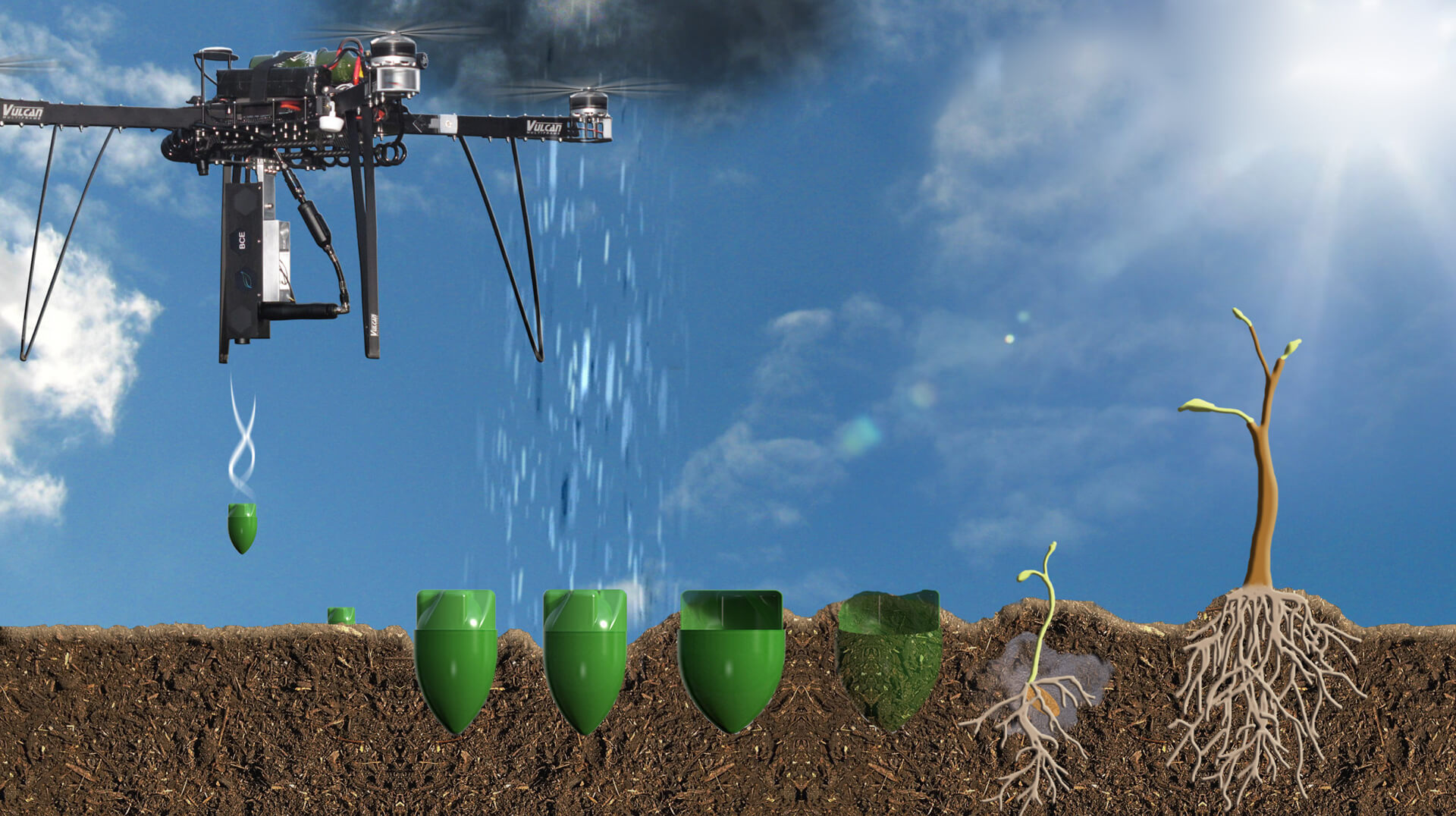How Drone Technology Can Help Re-Forestation
Drone technology can actually help solve the problem of deforestation
It would be an incredible feat of innovation if seeds could be planted in mass, in the most predictable manner. Drone technology today is making this possible. Through this, we can look at planting a thousand trees in a day. This can be done by firing seeds directly at the ground.
By putting seeds in a pod that is biodegradable, the pod is then shot into the ground through a drone. Intelligent sky trackers are using digital intelligence and automation to plant seeds with both speed and accuracy. Through artificial intelligence, scientist have identified the right species that can thrive in the right environment and therefore plant them when need be. This information is then fed into the drone that then follows a path and continues to plant seeds accordingly.
What the scientists are now looking for a swarm of such drones that
can actually help solve the problem of famine and deforestation. UAE for
example has already started using this technology is a novice way. Globally,
there is still 1 billion hectares of land that is suitable for plantation. Having
used properly, this could actually reverse the effects and lead to reforestation
and thriving ecosystems again.
In Dubai for example, a tech company has found that in fact drone technology could
help plant as many as 1 million Ghaf trees in quick time. It used the sme
technology to do so by planting 4,000 seeds in Sharjah by Cafu using drones, in
collaboration with the Sharjah Municipality and Environmental Protection Agency
(EPA).
The outfit called Cafu is concentrating on the Ghaf free because it acts
as the symbol of UAE’s Year of Tolerance. It is due to its very nature that it
is being seen as an apt symbol. The tree can survive in harsh conditions. It
survives on very little water, improves the quality of the soil, and helps
battle climate change by taking in up to 34.65kg of CO2 emissions per tree, per
year. As a Ghaf tree is able to live up to 120 years, this could result in over
4.1 million tonnes of CO2 being absorbed over their lifetime,” shared Rashid Al
Ghurair, founder and CEO of Cafu.

Comments
Post a Comment